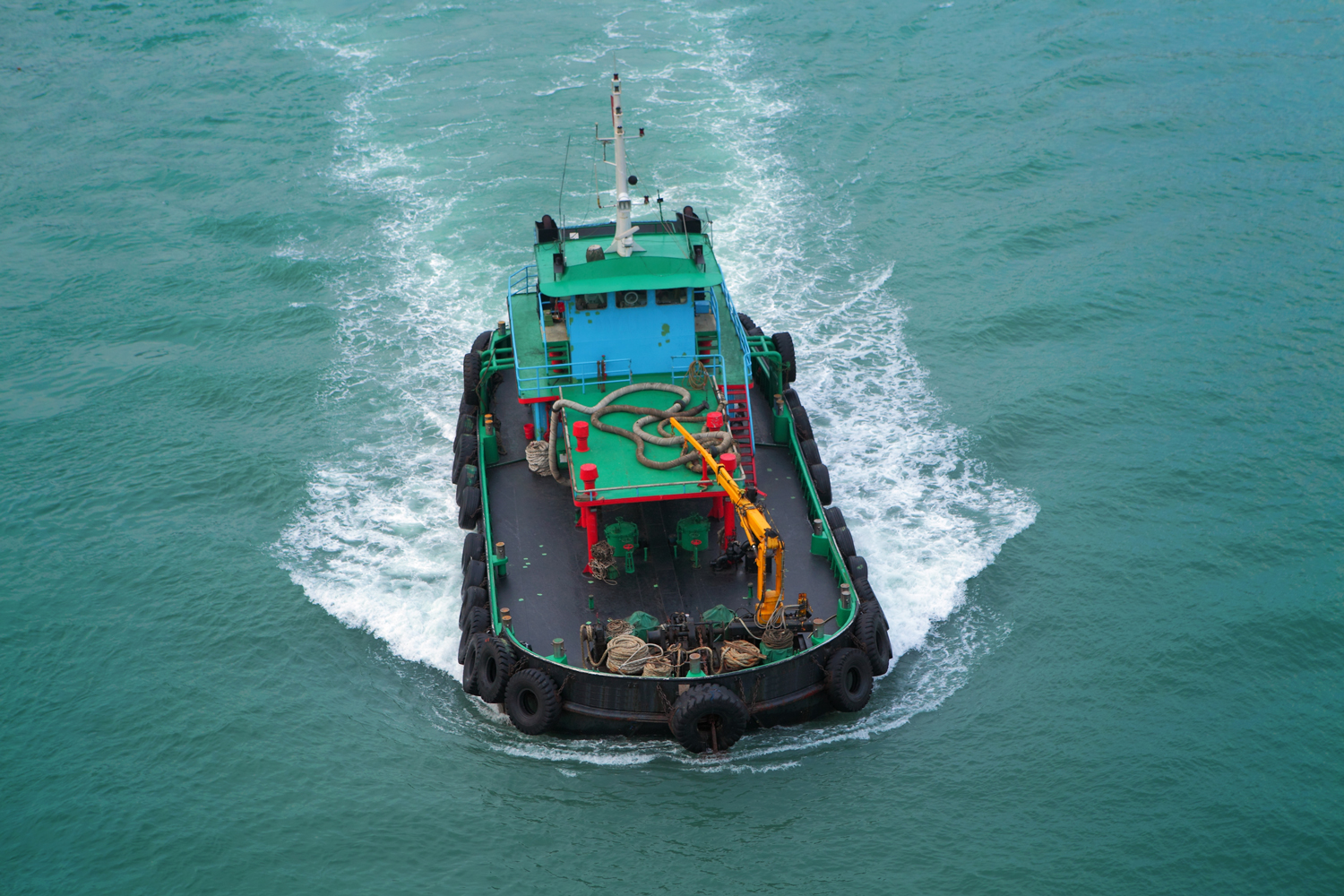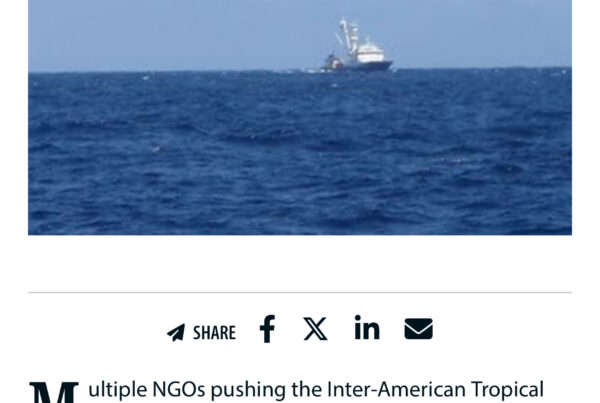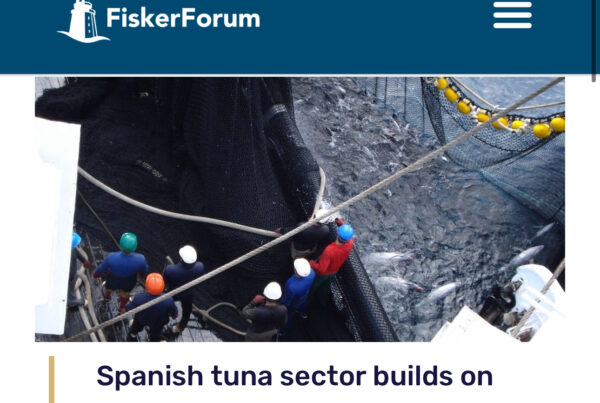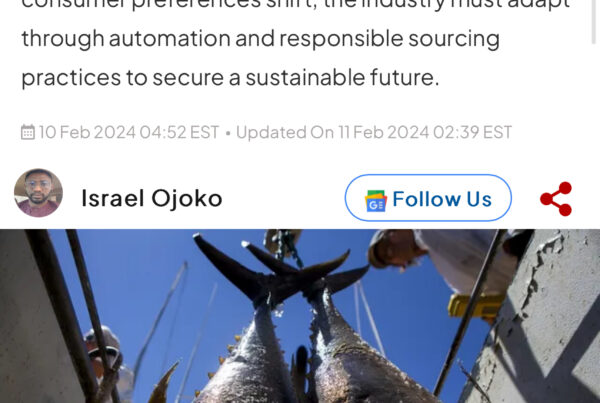Changes to MSC Fisheries Standard Up For Public Review
The Marine Stewardship Council (MSC) has initiated a 60-day public review of its proposed updates to the MSC fisheries standard, with stakeholders having until 4 April to review and provide feedback.
More than 446 fisheries, representing about 17 percent of the global wild marine harvest, are certified to the MSC fisheries standard – which is regularly reviewed for best practices in fisheries management. The current fisheries standard review began in 2018, and has included the participation of over 1,000 stakeholders. The draft standard has been approved by the MSC’s board of trustees and is now moving into the final stage of public review. Continue reading here (Source: SeafoodSource).
Blips on the Radar: Conservation Efforts for Tropical Tuna Fishing
On Dec. 6, the National Oceanic Atmospheric Administration announced that the United States won new conservation measures for Pacific tuna and will support inspections to interrupt illegal fishing. In addition, the Inter-American Tropical Tuna Commission (IATTC) controls on floating devices that attract tuna.
While prior solutions to manage tropical tuna were approaching their expiration date, the IATTC spent two meetings in 2021 negotiating new measures. As a result, the Commission adopted new three-year management measures for yellowfin, bigeye, and skipjack tunas caught by purse seine (a giant wall of netting deployed around an entire fish area) and longline vessels in the eastern Pacific Ocean at the October meeting. In addition, they imposed a 72-day closure for purse seine vessels each year and applied additional closure days to vessels that exceed a 1,200 metric ton annual limit of bigeye tuna. The controls aim to ensure that tuna fishing in the eastern Pacific Ocean is sustainable. Continue reading here(Source: theLog).
COVID Impact Sees Sustainable Fish Sales Dip in UK & Ireland
Sales of Marine Stewardship Council-certified products hit £1.26bn in the UK and Ireland in 2021 – slightly down on the £1.30bn recorded in 2020, the sustainability NGO has revealed.
In its latest market report for 2021, the MSC found the impact of the COVID-19 pandemic had varied considerably by sector and product format, contributing to the year-on-year drop in sales.
Volumes of MSC-labelled frozen product sales had grown over the past year by 24%, while sales of chilled, food-to-go, fish counter and foodservice products all decreased, the report showed. Continue reading here (Source: The Grocer).
2022 Could Be a Banner Year for Sustainable Tuna Fisheries
While no doubt a challenging year for fisheries managers, 2021 brought some victories toward ensuring the long-term sustainable use of tuna fisheries. ISSF was gratified to see highly necessary protections for tuna stocks extended in both the Pacific Ocean and the Atlantic Ocean, for example.
Overall, though, it was another year of just stepwise progress. Minimal movement in the Indian Ocean for better protected stocks – especially yellowfin tuna – major misses on harvest strategies in the world’s largest tuna fishing grounds in the Western and Central Pacific Ocean (WCPO) and only slight gains in electronic monitoring and FAD management leave tuna regional fisheries management organizations (RFMOs) with a robust to-do list in 2022. Continue reading here (Source: SeafoodSource).
Seychelles and Mauritius Will Fine-Tune a Bilateral Fishing Agreement
Seychelles and Mauritius will fine-tune a bilateral fishing agreement and discuss research possibilities in a six-day meeting which started on Friday, said a top government official.
The two island nations will also discuss the agreements both island nations have with foreign nations that fish in the Indian Ocean such as the EU – that represents mainly Spanish and French tuna purse seiners.
Mauritian fisheries minister Sudheer Maudhoo told a press meeting on Friday that “at the end of the day, it is not Seychelles and Mauritius doing the bulk of the fishing but rather foreign vessels.” Continue reading here (Source: Seychelles News Agency).
IPNLF Launches It’s Sourcing Transparency Platform to Drive Greater Transparency in Tuna Supply Chains
IPNLF is incredibly proud to announce the public launch of its Sourcing Transparency Platform (STP)!
The STP is a free online platform, exclusive to IPNLF member companies, that has been designed to drive real change in the seafood industry by promoting transparency throughout tuna supply chains. The overall aim of this interactive portal is to collaboratively improve the transparency of one-by-one tuna supply chains through the public disclosure of the sourcing information of these member companies. It not only provides a space for retailers, tuna brands and other supply chain companies to showcase their sustainability initiatives, but also allows them to demonstrate how their sourcing commitments and policies help protect ocean ecosystems while safeguarding the livelihoods of coastal communities, contribute to food security and strengthen local economies Continue reading here (Source: Perishable News).
Allowing Inaccurate Catch Reporting Will Endanger Fisheries and Damage EU Standing
Fisheries cannot be managed sustainably without good catch data. It is impossible to set effective quotas and assess the health of fish populations if the catches are unknown or inaccurate. This essential principle should be immediately evident.
Yet the European Parliament has recently supported a move to extend the ‘margin of tolerance’ for inaccuracies in reporting to the point where up to 40% of catches – and up to 50% in the case of tuna – might be omitted from official records without any penalty.
This means millions of tonnes of fish could go uncounted – potentially the difference between thriving populations and a precipitous collapse of stocks. Continue reading here (Source: EURACTIV).
Most of China’s Seafood Imports Are Reexported
In a Policy Forum, Frank Asche and colleagues estimate that almost 80% of China’s seafood imports are processed and reexported at a large scale to other markets. Since global trade in seafood is tightly linked to environmental, economic, and social sustainability, the authors argue that China’s model hampers international efforts to preserve global fisheries and efforts to allow coastal communities to compete in global fish markets.
“Narratives that emphasize Chinese domestic demand as driving China’s role in the seafood system pay too little attention to the reexport model, which highlights the complexity of tracing seafood sustainability,” write Asche et al. “The same product can be harvested in multiple countries with different management and labor conditions and comingle in reexport data.” Continue reading here (Source: Eurasia Review).



